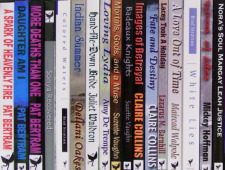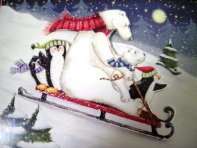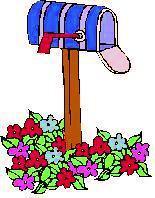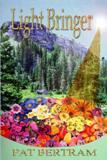Pat Bertram's Blog, page 285
December 26, 2011
Are You Playing The Kindle Game?
 People keep saying that Kindle, even more than other reading devices, has revitalized the book industry, making books affordable and reading more accessible. They say the market is expanding, that people who never read are now interested in books. But is this true? Are they interested in reading, or are they interested in playing the Kindle game, downloading books as fast as possible to fill their new toy?
People keep saying that Kindle, even more than other reading devices, has revitalized the book industry, making books affordable and reading more accessible. They say the market is expanding, that people who never read are now interested in books. But is this true? Are they interested in reading, or are they interested in playing the Kindle game, downloading books as fast as possible to fill their new toy?
One reason people always gave for not reading is that they don't have time. Do people suddenly have huge extra blocks of time to read, to get into a book, to explore new ways of thinking and experience new ways of being? I think not. It seems that reading is now part of the multi-tasking generation, where you read while doing something else. Is this reading? People say that reading is not a solitary activity any more, that new enhanced reading apps make it social. If so, is this really reading?
The other half of the Kindle game is the author game, where selling as many books as possible, is all that matters. Whether people actually read the book is immaterial. Of course, the major publishers started this game a long time ago, this game of sales records, and now it's been taken to the people where anyone can play. But that doesn't mean the books being sold then or now are worth reading.
When I mentioned in a comment to a fellow blogger that Amazon was a major publisher, she corrected me and said it was a sales platform, like using WordPress. It's a perfect analogy, and it explains an unusual phenomenon — my rapidly increasing blog rating. It always used to hang around 3,500,000 on Alexa.com, but suddenly, for no reason I could see (my readership is growing, but not enough to explain a leap in rankings), my blog began increasing in rank, and now it's at 929,990 (out of 346 million sites). Are blogs disappearing (or falling off the scale) because people are now uploading things for Kindle that they once posted on their blogs? If so, then books are being devalued to the level of a bloggerie.
Makes me wonder if I'll ever take up writing again.
But for now, if you are playing the Kindle game, all my books are available both in print and in ebook format. You can get them online at Second Wind Publishing, Amazon, B&N and Smashwords. Smashwords is great! The books are available in all ebook formats, including palm reading devices, and you can download the first 20-30% free.
This is the third post where I've been mulling over the current state of the book business. The other two are: Is the Book Business Dying? and First the Bread Wars, Now the Book Wars.
Tagged: Amazon, blog ranking, blogging, book industry, Kindle, reading

December 25, 2011
You've Got Mail!!!
Tagged: Mail, mailbox, Merry Christmas

December 24, 2011
Christmas and Grief: Creating New Traditions
 This will be my second Christmas without my life mate/soul mate. I didn't expect it to be a problem since we never celebrated Christmas as such. But, since it was a day with no mail, no open stores, no reason to do any of our daily activites, we'd fix plates of finger foods — meat, cheese, crackers, apples, carrots — and watch movies all day. It wasn't until after he died that I realized our non-celebration had become a traditon.
This will be my second Christmas without my life mate/soul mate. I didn't expect it to be a problem since we never celebrated Christmas as such. But, since it was a day with no mail, no open stores, no reason to do any of our daily activites, we'd fix plates of finger foods — meat, cheese, crackers, apples, carrots — and watch movies all day. It wasn't until after he died that I realized our non-celebration had become a traditon.
I don't like watching movies by myself. Without his enjoyment sparking mine, the movies seem flat and uninspired. Apparently whatever energy we generated between us brightened the story and made it personal, as if we were part of it or it was part of us. Now he is gone. That extra energy is gone. The tradition is gone. And I am all that's left of our shared Christmases.
I never understood the point of traditions. Traditions seemed to be customs people blindly followed long after they'd forgotten the reason for the rituals and, since I have a very hard time dealing with pointlessness, I seldom followed traditions. (Hence my surprise at discovering that we had created a Christmas tradition after all.) Now, however, I do see the point. The point is continuity, connection, comfort. Life can be cold and cruel and desperately lonely. We need something to hold on to, and tradition gives us something to grasp when everything we hold dear has disappeared. Somehow, I will need to create new traditions, if only for myself.
My life mate/soul mate always loved Christmas lights, so last Christmas Eve, I took him for a walk. (He still lives in my heart, and that is the "him" I took walking.) I walked around the neighborhood viewing the lights, not just taking a cursory look as is my wont, but appreciating every scene, every effort the neighbors had put into their vignettes as he would have done. (He was an appreciator. I'd never known anyone who could appreciate every nuance the way he used to.) And tonight — Christmas Eve — I did it again. Walked around the neighborhood. Appreciated the artificial lights and the natural lights above. (Lots of stars tonight!) From such simple beginnings, new traditions are created.
Merry Christmas, compadre, wherever you are.
Tagged: appreciation, Christmas Eve, Christmas lights, Christmas tradition, creating traditions, grief at christmas, traditions

December 23, 2011
First the Bread Wars, Now the Book Wars
Before a certain well-known bread was manufactured, people bought their bread fresh every day from a local bakery. When bread was first mass-produced and packaged in a colorful wrapping, people were hesitant to buy because they didn't believe it could be fresh since it hadn't been baked that very morning. So, what did the bread manufacturer do? They had people drive up and down the streets handing out loaves of their bread to everyone they saw. Who could pass up a free loaf of bread? Not many people, that's for sure. One free loaf wouldn't have made an impact. That brand of bread would have become just one choice among many. But . . . the company kept giving away the bread, day after day after day. Soon people began to expect free bread. They stopped buying bread from their local bakers, and eventually, those bakers went out of business. The manufactured bread became the only choice in town, a price was attached, and the price went up and up and up. And people had no idea this coup d'état had taken place or that they had been pawns in a major cultural revolution.
That story might sound like a fairy tale, but it happened. And it's happening again, though this time it's about books. There is a war going on between Amazon and the major publishers to determine the course of the book business, and we are all pawns. People laugh at the entrenched publishers, saying they don't have a clue where the book business is going, but the truth is, they do know, and they are fighting back. It's a war of price — what to charge readers to buy an ebook (most people who own kindles seem to believe they paid their price of admission by buying the kindle and that anything they download should be free or pretty close to it). And it's a war of literary value. Dinner and a movie costs a small fortune now, and the pleasure is fleeting. The movie is forgotten, but even before that, the food becomes waste. Why should a book, especially a thoughtful, well-written book be valued less than human waste?
Make no mistake about it. Books are being devalued at this very minute. People think they are in the vanguard of a fight for the people's right to write and publish whatever they wish without having to kowtow to the old publshing standards. But who are they working for? Amazon. With all the free books people are uploading onto Amazon, Amazon doesn't even have to manufacture a product like the bread company did. People are standing in line, begging to give them product, hoping to be one of the chosen few who makes a mint selling books. And Amazon is playing them like a violin, choosing certain books to promote, showing everyone that yes, it is possible. But only if you give Amazon the keys to your literary kingdom.
Perhaps people do have the right to write and publish whatever they like, good or bad. The major publishers certainly didn't do a good job of it, shoving crap down our throats and expecting us to like it, but once upon a time, there were standards. Sure, some good books were rejected out of hand, but others were published, polished, promoted. It was a golden age of reading, but it came to an end because of corporate greed and the first devaluation of books. Bottom line became important, quality was slashed, books were chosen not so much on merit but what a person standing in a grocery story line would be apt to throw in their cart. People didn't seem to care since there were so many other entertainment choices vying for their spare change.
So now, books are being devalued even more. Amazon is spewing out bestsellers as fast as the major book publishers are. It sounds nice, doesn't it: let readers decide what they want to read. But it doesn't happen that way. Readers are inundated with constant demands to "buy my book!" Dross is being over-promoted at both ends of the spectrum — the traditionally published books and the self-published kindle books. The books that come to the general reader's attention are those the various book publishing companies choose to push (and make no mistake about it — Amazon is a publisher in a major way), and the books that the relentless and shameful marketers are bringing to your attention. Of course there are good books at both ends of the spectrum. But the vast majority are books that any discerning reader couldn't stomach.
 There is a third player in this war, though so far they seem to be standing by, bewildered by the onslaught. These are the small, independent, royalty paying publishing companies who follow the traditional publishing model to the extent that they accept submissions but choose to publish only the best.
There is a third player in this war, though so far they seem to be standing by, bewildered by the onslaught. These are the small, independent, royalty paying publishing companies who follow the traditional publishing model to the extent that they accept submissions but choose to publish only the best.
People assume I am a kindle author because I am so visible in various places on the internet, but I am not. My books were chosen out of a slushpile, and were accepted by Second Wind Publishing. It would be nice if, after the gunsmoke clears away, that we few, we chosen few, are still left standing.
Tagged: Amazon, book business, book wars, bread wars, cultural revolution, free bread, Second Wind Publishing

December 22, 2011
What Grief Taught Me About Love
 It always amuses me when I see "biographies" of young celebrities. "Biography" connotes more than a simple depiction of the facts of a life. It should tell us the person's early influences, their failures and successes, their growth through adversity and grace during prosperity, and most of all, how they ended up where they ended up. What does any of that have to do with an eighteen-, twenty-, or even thirty-year old celebrity? Sure we can see what their childhood influences are, but how do those early years affect their later ones? How do they carry themselves throughout a lifetime of success and failure? What did they learn? (Quite frankly, what is there to say about a person who acheives success at an early age and who maintains that success? So they struggled for a few years. So what? Many people struggle a lifetime and achieve nothing but old age.)
It always amuses me when I see "biographies" of young celebrities. "Biography" connotes more than a simple depiction of the facts of a life. It should tell us the person's early influences, their failures and successes, their growth through adversity and grace during prosperity, and most of all, how they ended up where they ended up. What does any of that have to do with an eighteen-, twenty-, or even thirty-year old celebrity? Sure we can see what their childhood influences are, but how do those early years affect their later ones? How do they carry themselves throughout a lifetime of success and failure? What did they learn? (Quite frankly, what is there to say about a person who acheives success at an early age and who maintains that success? So they struggled for a few years. So what? Many people struggle a lifetime and achieve nothing but old age.)
In fiction, the starting point of the story is when the character first encounters a major change that ruptures the status quo of his or her life, and it ends when s/he has established a new normal, a new status quo. In non-fiction, biographies especially, you expect the sweep of years, not merely a fraction of the life. (But then, who am I to say that biographies are non-fiction.)
When a person dies, you can begin to see the sweep of his life. It exists entire and whole in itself, without possibility of change. It is only then that you can make sense of that life, at least as it pertains to you. (I'm not sure we can ever truly make sense of another's life, since so much of one's life is internal and hidden from view.) So it is with me and my life mate/soul mate. I can see more clearly what we were to each other and why I still grieve his death.
What we had didn't feel like love. After a few brief years of hope and happiness, our love was sublimated by the constraints of his growing ill health. It seemed that our cosmic love devolved into the prosaic things of life: cooking meals, doing errands, struggling to keep our retail business alive. And then it devolved further into simply surviving. Getting through the days as best as we could. We always knew we had a deep connection, though we never understood it and at times we both railed against it in our struggle to maintain our own identities, but we took that connection for granted. And what is that connection if not love?
It's only when the story is ended that you can see the truth of it. And the truth is that love is not what you feel, but what you do. Love is being together, sharing good times and bad. It's about not being afraid to explore who you are and what you will become. It's about being together however you can for however long you can.
My wish for you, during this season of giving, is that you find enough love to last a lifetime.
Tagged: being together, biographies, connection, death, grief, truth about love, what is love

December 21, 2011
Voyage of Discovery
December 20, 2011
Is the Book Business Dying?
 Is the preponderance of self-published books killing the book business? I've been reading articles about how Amazon is promoting self-published ebooks — a few people have been picked by Amazon arbitrarily, and Amazon promoted these books constantly for a week and made them best-sellers. I've seen a couple of these best-selling self-published ebooks, and they are so poorly written, I can't see why anyone would buy them, but since people do buy them, it must mean readers don't care about good writing or good story-telling. I've also seen books go viral for absolutely no reason I can fathom. (And often, the writer has no clue, either.) Most often, these books go viral only on Amazon, with no bleed-over into other ebook formats, which means Amazon has an amazing control of the book business.
Is the preponderance of self-published books killing the book business? I've been reading articles about how Amazon is promoting self-published ebooks — a few people have been picked by Amazon arbitrarily, and Amazon promoted these books constantly for a week and made them best-sellers. I've seen a couple of these best-selling self-published ebooks, and they are so poorly written, I can't see why anyone would buy them, but since people do buy them, it must mean readers don't care about good writing or good story-telling. I've also seen books go viral for absolutely no reason I can fathom. (And often, the writer has no clue, either.) Most often, these books go viral only on Amazon, with no bleed-over into other ebook formats, which means Amazon has an amazing control of the book business.
There seems to be a movement going on to erode the traditional means of determining a worthwhile book, with vast numbers of people saying book standards are dead and they can write however they choose, without regard to grammar or story-writing skills. Which apparently is true, since such books find a market. (And often, these books get 5-star reviews, which says more about the reviewer than the book.) There is also a growing militancy among self-publishers. If you say anything against the practice, there is a huge backlash of disapproval.
I'm not saying all self-published books are poor quality — some are well written and well-edited and deserve their acclaim. Nor am I saying that traditionally published books are good quality — most are not worth reading. But with books on both ends of the spectrum selling millions of copies, is there any place for those with well written, unique, and perhaps thoughtful books who aren't self-published and who don't have a major publisher behind them to push the books? Or have the people spoken and said they have no use for such books?
When books are so prevalent, especially when vast numbers of readers seem to have no ability to determine what is worthwhile, books become devalued. Albert Nock, in the 1930s, disagreed with universal literacy. He contended that when everyone can read, books will be written to appeal to the least common denominator, and there is no doubt that during the subsequent decades, books were published based on their ability to appeal to the most readers possible. If there is any truth that book quality declined with universal literacy, wouldn't it be even more true if there is universal publishing?
Historically, whenever one product or category of products dominated the market, it presaged the end of that product. If you are old enough, you remember when the streets were clogged with VW Beetles, and now you seldom see one. Is the preponderance of books on the market today the beginning of the end?
Tagged: Albert Nock, Amazon, book standards, ebooks, self-published books, universal literacy

December 19, 2011
Letter to Book Reviewers
Dear Book Reviewers:
I love your enthusiasm for my books, I appreciate your support, and I'm especially thankful you took the time out of your busy day to review the books and post the reviews, but . . . must you give away so much of the plot? A review is not a synopsis and readers do not need you to reveal every major plot point of the book. And they especially do not need (or want) you to tell them how it ends. What people want is a reason to read the book, and if you tell them too much, you have taken away any reason for them to read it, in which case you have done us all a disservice. And I am sure that was never your intention.
I don't mean to sound harsh or ungrateful, but I spend a lot of time mapping my books, slowly revealing the truth, each new revelation dependant on the one that comes before, so that by the end of the book, people end up believing (at least for the moment) that the story is true. If surprises are revealed out of sequence, it breaks the chain of evidence. So not only will readers know what to expect, they will be robbed of the unique experience of believing something foreign to their everyday lives.
As a general rule, if you must, you can mention things that happen in the first fourth of the book, and for sure you can hint at what will happen in later chapters without mentioning specific events, but anything beyond that is a spoiler and should be noted at the beginning of the review. (For example: "This review contains spoilers.") Those who don't like surprises will continue reading your review. Those who do like surprises can choose not to read it.
Recently I've asked a couple of you to remove spoilers from your reviews, and you kindly and graciously agreed, and for that, I thank you. Others of you refused to change a word, saying you stand by what you said. I did not ask you to change your opinion. I merely asked you to remove the spoilers, which did not merit the abusive reply.
For those of you who don't like my books, that's fine, but please don't write a dismissive review based on what the books are not. My books are not romances, (though all contain a romance of sorts) so do not expect them to follow the genre conventions for romance novels. My books are not apocalyptic, so do not expect them to follow the conventions for such stories. If you need a tag for the novels, call them thrillers, call them suspense, call them conspiracy novels, or you can call them "typical Bertram."
As Malcolm Campbell said of Light Bringer, it is "typical Bertram: plots within plots, multiple characters with multiple agendas, fast moving, more than enough mystery and intrigue for everyone."
Respectfully,
Pat Bertram
author of Light Bringer, More Deaths Than One, A Spark of Heavenly Fire, and Daughter Am I. All are available for Kindle on Amazon.
Tagged: book review, book reviewers, letter to reviewers, spoilers, writing a review.

December 18, 2011
Thinking Through My Fingers
Writing, to me, is simply thinking through my fingers. — Isaac Asimov
The art of writing is the art of discovering what you believe. — Gustave Flaubert
 Occasionally, after writing about grief, I get concerned messages from readers or facebook friends suggesting that I might want to see a therapist. Or I get messages of pity, which is strange — why should they feel sorry for me when I don't feel sorry for myself? The very word — grief — scares people, and worries them, and my use of the word gives people the wrong impression of me. Although I'm on a journey through grief, I don't spend my days in bed crying my eyes out. I don't shrink from life or hold myself stiff against onslaughts of pain. I haven't numbed myself into unfeelingness. In fact, I live normally. I've come through the worst of the pain stronger (though not much wiser, at least not yet). I do still have grief bursts, but mostly I'm just . . . journeying.
Occasionally, after writing about grief, I get concerned messages from readers or facebook friends suggesting that I might want to see a therapist. Or I get messages of pity, which is strange — why should they feel sorry for me when I don't feel sorry for myself? The very word — grief — scares people, and worries them, and my use of the word gives people the wrong impression of me. Although I'm on a journey through grief, I don't spend my days in bed crying my eyes out. I don't shrink from life or hold myself stiff against onslaughts of pain. I haven't numbed myself into unfeelingness. In fact, I live normally. I've come through the worst of the pain stronger (though not much wiser, at least not yet). I do still have grief bursts, but mostly I'm just . . . journeying.
The problem with continually putting my thoughts and feeling out there for anyone to see is that readers draw their own conclusions based on their own experiences, and sometimes those conclusions don't reflect my truth. I don't always like seeing myself through pitying eyes, so periodically I decide to stop writing about grief, and sometimes I do stop for a week or two, but I always come back to it because my message is an important one:
Grief is normal. If a friend or loved one is grieving, and it bothers you, get over it. It is not your problem. Give them the respect they deserve and the space they need to find their way through grief in their own time. (Admittedly, a small percentage of people have trouble and get stuck in one place, but if a person's grief is fluid — continually changing — chances are she is doing just fine.)
Besides, whether I'm actively grieving or just processing what I've learned, writing about grief is a way for me to learn the truth. (And, as I explained yesterday, in my Grief is a Gift post, I have always been a truth-seeker.) So why should I let anyone's "concern" stop me from thinking with my fingers and discovering what I believe?
Sometimes the discoveries surprise me. In a post a few days ago, What Do You Say to Someone Who is Grieving at Christmas?, I wrote: "Nothing you can ever say will bring the bereft what they most need: life to make sense once more. (That might not be what we most want, but it is what we most need.)" I didn't realize this before I wrote those words, but it's the truth. And in this post, I discovered something. I didn't know until I saw the words, "my message is an important one" that I had a message, had something I wanted to impart with my grief posts.
So, as I continue on my journey through grief, I will still write about it — or not — depending on how I feel, not how anyone else feels.
Tagged: art of writing, grief, journey through grief, thinking with fingers

December 17, 2011
Grief is a Gift
 I did not choose grief. Grief was thrust on me. To be honest, I never expected to grieve. My life mate/soul mate had been sick for so long I thought I was used to the idea of continuing life alone. I thought we'd untwinned our lives and had set out on separate journeys, him to death, me to continued life. His death, however, opened a hole in the universe and the cold breath of eternity has seeped into my soul. I don't know if the hole can ever be patched. I don't know if I want it to be. I for sure don't want to push thoughts of him out of my mind. Such thoughts, though they still bring sadness, help bridge the gap between his presence and his absence. (Absence is such a mild term to describe the unfathomable "goneness" of someone who is dead.)
I did not choose grief. Grief was thrust on me. To be honest, I never expected to grieve. My life mate/soul mate had been sick for so long I thought I was used to the idea of continuing life alone. I thought we'd untwinned our lives and had set out on separate journeys, him to death, me to continued life. His death, however, opened a hole in the universe and the cold breath of eternity has seeped into my soul. I don't know if the hole can ever be patched. I don't know if I want it to be. I for sure don't want to push thoughts of him out of my mind. Such thoughts, though they still bring sadness, help bridge the gap between his presence and his absence. (Absence is such a mild term to describe the unfathomable "goneness" of someone who is dead.)
I've come to view grief as a gift. Not many people agree with that, but for me, it is very much of a bequest, the last present he ever gave me. I've always been a truth-seeker, always wanted to see what was beyond the veil of everyday reality. (If you've read any of my books, you can see the pattern. Each of my novels seeks to reveal the lies that hold our culture together, from so-called conspiracy theories to biological warfare, from human experimentation to old time gangsters. Despite the disparate stories and themes, they are all united by my need for the truth.)
This hole that grief has opened, both into the universe and into the human psyche, might bring me to the truth I seek. And even if it doesn't take me where I want/need to go, it's still a gift. Not many people are privileged to find their cosmic twin, to be connected to another human, soul to soul, as we were, and grief is the price I have to pay. Sometimes the price seems too high and I'd like to fling the gift back where it came from, but other times, it almost makes sense, as if the universe is unfolding the way it should be.
From the beginning, even when the pain of his absence made it almost impossible to breathe, I've trusted my grief to guide me through the days, weeks, months. Despite the insanity of the feelings grief creates, I knew I was sane and well adjusted, and so I felt free to follow the wild and agonizing ride. I've learned much these past twenty months on how to survive, how to find sense in the senselessness, how to find peace within the sadness. I've found courage, patience, compassion, and a strength I didn't know I had. I still don't know where I am going — I can't see the end of the road. For all I know, there might not be an end. The journey could be all there is.
My talk of grief gives people the wrong impression. I'm not sure that what I am feeling right now is strictly grief, at least not the way most people think of grief. But it's not "not grief" either since I do still have upsurges of tears and sadness and loneliness. Most of the time I'm just . . . me. In fact, since I stopped watching the movies and television shows he taped for us, which caused horrendous upsurges in grief since we'd always watched the tapes together, I've been in sort of a limbo. Until we find another word than grief for the long-term effects of having lost someone important in our lives, I will continue to use the word "grief," because whatever I do, whatever I feel is part of my grief journey.
And it's all a gift.
I just hope I remember that during my next upsurge of grief.
Tagged: cosmic twin, death, grief, human psyche, loss, surviving grief, truth-seeker








